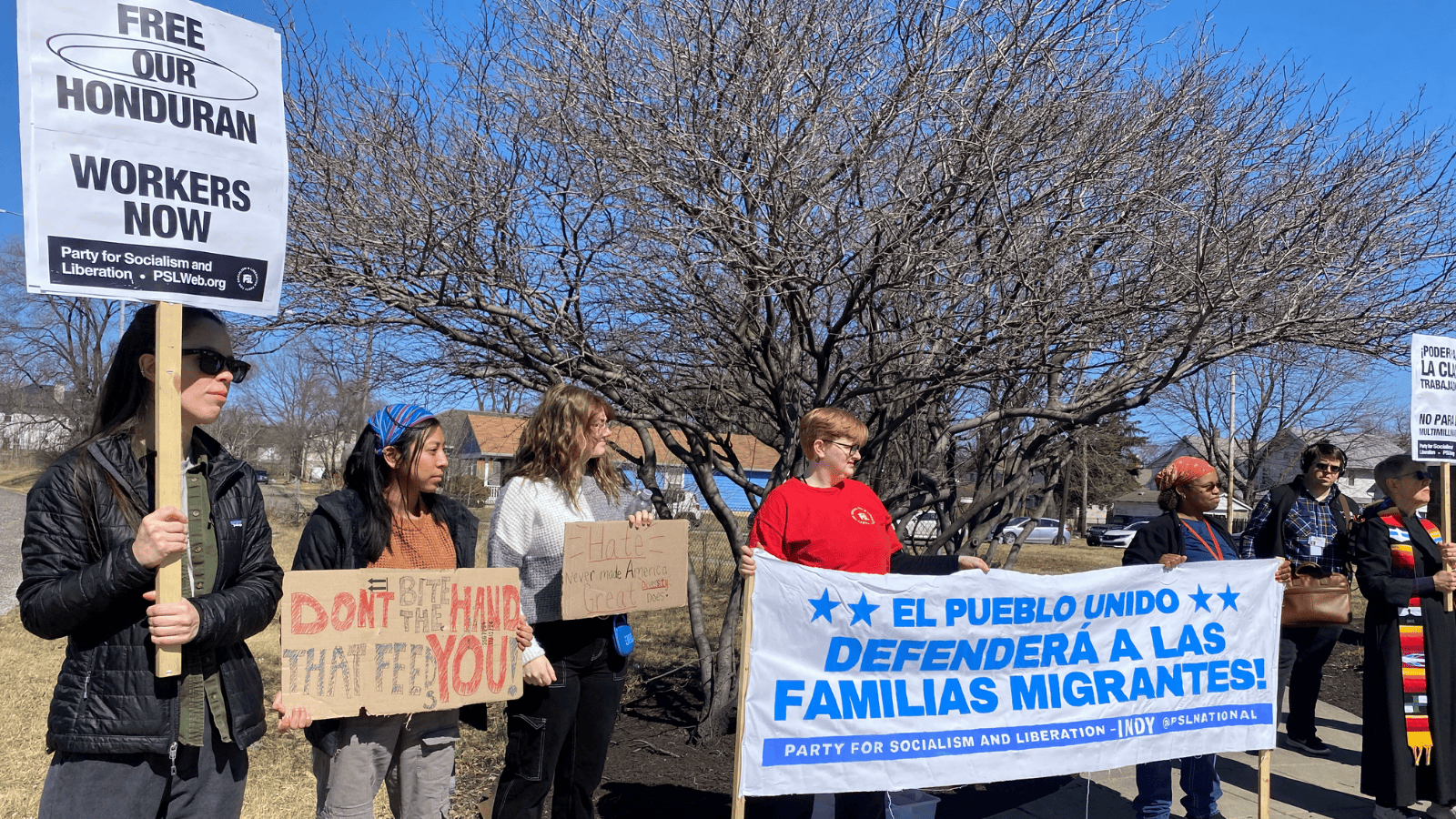As the spontaneous, large rallies for immigrant rights appear to be at a lull for now, let us not forget who really has the power and where said power lies. As they always do, the Democratic Party officials will try to dim our revolutionary light by the familiar refrains, like “call your representatives and ask them to fight for you,” and “this is the way we can make a real difference, we have to rely on our elected officials.”
Perhaps it’s a lie they’ve told themselves so many times they really believe it’s true. But what even relatively recent history–from the gay rights movements of the 1970s, the civil rights movement of the 1960s, or the women’s suffrage movement of the early 20th century–shows is that we win our rights by fighting and staying in the streets, not by benevolent “representatives.”
No politician handed us any of our rights. They were fought and won by the people and for the people; by protesting, by marching, by boycotting. They weren’t “granted” to us by writing to the billionaires who help write the laws and benefit from our pain. Writing to elected officials is one tool in our repertoire, but it is far from the most effective tactic. Officials ignore emails, shred letters, screen phone calls, and have overworked secretaries take messages that will never be heard.
But they cannot ignore the voice of the people when it is outside of their windows. “Whose streets? Our streets!” is more than just a catchy chant; it is a proclamation that we hold the power. These streets have been literally built by us. If only we are willing to stand up and use them.
And to the Democratic “leaders” who try to dissuade you from continuing to be in the streets–to talk you out of protesting, rallying, and picketing–remind them that the U.S. government has a long history of siding with fascism. For example, their bipartisan support for apartheid South Africa only wavered in the face of unyielding international pressure and a powerful domestic anti-apartheid movement of mass demonstrations at South African consulates and college campuses across the country, as well as cultural interventions by athletes, artists, and others. Only after the pressure generated by this movement did the U.S. government finally pass the Comprehensive Anti-Apartheid Act of 1986 (although it would take them more than 20 additional years for them to remove Nelson Mandela from their “Terror Watch List”).
Before this, in 1964, the U.S. Senate was against the Civil Rights Act and the filibuster lasted 54 straight days. Why did the filibuster fail? Because of the people’s anger and passion that caused movement in the streets. Because the people, and not the elected officials, cared about one another, the segregationists were defeated. So don’t ever let someone tell you that protests don’t matter. Protests are the voice of the unheard: you make enough noise, they will hear you.
It can’t just be one group or sector showing up. This movement must be mass-based and multinational. We in the Party for Socialism and Liberation have been able to help lead the initial stages of the local immigrant rights struggle through collaborative efforts with other new and established organizations from a wide array of ideological trends. Immigrants cannot be the only ones who show up for immigrants, just as Black people cannot be the only ones who show up for Black people. Unity in the struggle is how we win. We have to remember that we have more in common with one another than we do with the billionaires and millionaires who think they run this country.
When we showed up to the Statehouse on January 28, our demands and signs were clear: “Abolish ICE,” “Billionaires are the real enemies, not immigrants,” “Money for jobs and education, not mass deportation.” These should be unobjectionable arguments, but the liberal left would like us to believe we are being “too bold” and making “unreasonable demands.” We are starving, and begging for crumbs won’t save us or fill our stomachs.
The movement has, for now slowed down, as all movements do, but this does not mean that our power has to decrease in the meantime. Whether we are holding teach-ins or organizing sit-ins, we have to keep building together.
For now, we are engaging in neighborhood outreach to keep ICE out of our neighborhoods (and no working-class community has said they want ICE there). We mobilized an emergency action after the violent assault and arrest of two men from Honduras. We remain ready to act because we continue to act. We can take advantage of lulls in the movement by building stronger bonds with our organizations, communities, and as individuals. We call on all people and organizations who want to keep building this struggle and who are open to the idea that our power is in the streets, to join us in our campaign, email us for a meeting, request to speak at one of our events, or offer any other form of collaboration you have in mind. Reach out to us at contact@pslindianapolis.org.
When we struggle together, we win together!
Featured photo: An emergency demonstration two days after three federal agents violently and without cause stopped and arrested two workers from Honduras. Credit: PSL Indianapolis.

